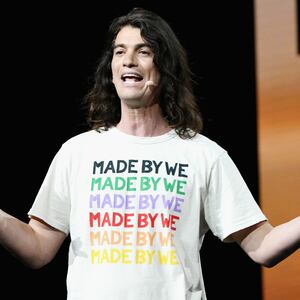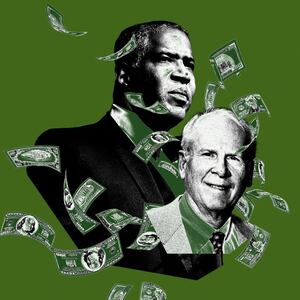News broke on Monday that Barre Seid, a 90-year-old manufacturing billionaire based in Chicago, had quietly offloaded his company to a conservative nonprofit—generating a mammoth $1.6 billion payday for the group and allowing all parties to avoid taxes on the sale.
The transfer, which took place in 2020 but only just came to light, could be transformative, both because of the amount of money involved and how it may change the way ultra-rich political donors structure their gifts.
“This is a big deal. This is a kind of transformation in the way that conservative-issue advocacy organizations are going to raise money,” said E.J. Fagan, assistant professor of political science at the University of Illinois Chicago.
Seid has worked assiduously to avoid the limelight, but his name has repeatedly cropped up in political controversies over the last 20 years.
In 2008, for instance, a New York nonprofit disseminated more than 20 million DVDs featuring a film titled “Obsession: Radical Islam's War Against the West,” in an apparent effort to tilt that year’s elections toward John McCain and other Republican candidates.
At first, it wasn’t clear how the nonprofit, Clarion Fund, got the cash to fund its messaging blitz, which was criticized for fomenting anti-Muslim hate. Then a reporter at Salon noticed that Clarion appeared to have accidentally submitted “an extra page with donor information” alongside its required disclosures. The addendum listed nearly $17 million in contributions from a mysterious “Barry Seid.”
Seid spells his name differently—“Barre”—and at the time both his representative and Clarion’s disputed the accuracy of the accidental filing. As Salon and other outlets noted, though, Clarion received $17.7 million from a donor-advised fund called Donors Capital Fund in 2008, and Seid had worked with DCF in the past. In theory, the fund could have acted as an intermediary between Seid’s money and Clarion.
A separate controversy broke out around the same time. Between 2007 and 2008, Seid’s foundation gave $825,000 to Shimer College, a tiny institution in Chicago that had barely 100 students.
Meanwhile, a new president was brought in to lead the school, Thomas Lindsay, who expanded the board of trustees by 13 people, up from 22, The Chronicle of Higher Education reported in 2010. Curiously, a number of those people were closely tied to Seid.
A flurry of battles quickly broke out on campus, including a highly contested decision to revise the school’s mission statement. Out went a commitment to “active citizenship in the world,” and in went emphasis on required reading of the foundation documents—“the Declaration of Independence, the U.S. Constitution, and The Federalist.”
The revised statement noted that Shimer’s mission centered on “liberal education,” with the term “liberal” rooted in the word “liberty.” It further declared that “education at Shimer is an education for and through liberty.”
Lindsay was reportedly pushed out in 2010, and Shimer was acquired by another institution in 2017.
Seid, who did not immediately respond to a voicemail requesting comment, has sprinkled money into other conservative causes as well. As one example, his foundation has donated more than $250,000 to the Heartland Institute, a think tank that has been assailed for trying to stir doubt about the existence of climate change.
An editorial in Nature in 2011 called Heartland’s conferences “curious affairs… in which science is secondary to wild accusations and political propaganda.” Five years ago, the institute blitzed over 300,000 teachers with allegedly “bogus” scientific information, including a book entitled “Why Scientists Disagree About Global Warming.” (A Heartland spokesperson told BuzzFeed it was simply trying “to make sure teachers were aware that there was alternative scientific research.”)
Seid has had other dust-ups, too. As ProPublica noted this week, “activists” have speculated that Seid is the anonymous donor who helped rename George Mason University’s law school for the late Supreme Court justice Antonin Scalia.
For all the splash his donations have made, Seid amassed his fortune in a remarkably unflashy industry. His former firm Tripp Lite was founded in 1922 and specializes in “power quality products and connectivity solutions,” like surge protectors and enclosures for data centers.
According to ProPublica, Seid rose to become the business’ president in the 1960s, and three decades later he was earning about $30 million annually. Tax documents obtained by the outlet reveal that his income more than quintupled by 2018, largely thanks to Tripp Lite.
As The New York Times first reported Monday, two years ago Seid offloaded his stake in the business to the conservative nonprofit Marble Freedom Trust, which may have prevented hundreds of millions of dollars in tax liabilities when the company was subsequently sold for over $1.6 billion. The Times said that Marble is overseen by Leonard Leo, who has feverishly worked to advance conservative causes and judges.
Benjamin Soskis, senior research associate in the Center on Nonprofits and Philanthropy at the Urban Institute, told The Daily Beast that the “Seid gift takes all the concerns about the threat mega-donations can pose to democratic norms and institutions that we’ve seen develop with respect to 501c3 [nonprofits] and super-charges them,” since Marble’s status as a 501c4 nonprofit allows it to more easily spend money to influence elections.
“Those concerns are further amplified by the fact that neither Seid nor Leonard Leo, who’ll have effective control over the funds, has shown any commitment to transparency,” he added.
Skye Perryman, CEO at the nonprofit Democracy Forward, also said the gift intensifies concerns about political spending and signals that the country is “still in the middle of this fight.”
“What we are looking at is a movement that has gained outsized political power [and] is seeking to wield that power to the detriment of people and communities,” she said. “That presents real threats to our democracy.”








